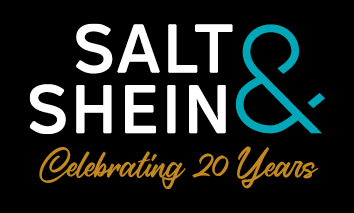Is silence ever a virtue in professional communications?
Often, the less you say the better. This is true about your sister’s surprise birthday party and the promotion your coworker has asked you to keep under wraps. From ‘silence is a virtue’ to ‘silence is golden’, there are countless adages celebrating the art of keeping one’s mouth closed; but while not speaking up is celebrated…
Often, the less you say the better. This is true about your sister’s surprise birthday party and the promotion your coworker has asked you to keep under wraps.
From ‘silence is a virtue’ to ‘silence is golden’, there are countless adages celebrating the art of keeping one’s mouth closed; but while not speaking up is celebrated in certain areas of our lives, is it ever appropriate in professional communications?
In this sector, silence is often something we avoid. Sometimes, however, it could be the best approach.

When is silence ethical in professional communications?
Your friend tells you a secret. The next day, you repeat that secret to someone else. Is this ethical? Most would say no – this is a case where silence would have been the best approach.
The same is true of certain secrets affecting your organisation. A sales negotiation that hasn’t been closed, for example, is one that’s best to be silent about, as are issues regarding hiring, firing, resignations and personal concerns.
Sometimes, silence isn’t just the best approach, but the only legal option.
Sometimes, silence isn’t just the best approach, but the only legal option. Contractual silence and nondisclosure agreements have been put in place to protect individuals and organisations from reputational damages should confidential information get out.
A couple of years ago, the Australian Sports Anti-Doping Authority (ASADA) came under fire for allegedly taking away athletes’ legal right to silence. The organisation had inserted a provision that they would be banned from competing in the Rio Olympics should they refuse to be questioned by ASADA.
Backing ASADA, the Australian Olympic Committee spoke out about their zero tolerance policy, issuing the following statement: through a spokesperson:
“If you are adhering to the rules, if you are clean, you have nothing to fear by answering questions.”
The Australian Athletes’ Alliance (AAA), however, responded in support of the athletes’ right to remain silent.
General Secretary Ian Prendergast said, “It is not the case they are prepared to give up all of their fundamental rights others in society take for granted in the purported aim of achieving that objective. The right against self incrimination is an important fundamental right that must be protected for athletes, which Parliament has made clear.”
And when is it not?
What do you think? Was it unethical to take away the right to silence of Australian athletes – some of them children?
Certain communications professionals would say yes, but others would say speaking up is even more essential during tough times.
Why speak up when things are bad?
When your organisation is in crisis, silence can be a major risk.
After all, if communications professionals remain silent, an opportunity is created for misinformation to spread. By speaking up, we’re able to mange and control – to an extent – what is said about us.
Take a look at the recent Facebook debacle where the social media giant was found to be misusing user data in a number of ways. How did Zuckerberg respond when it was discovered that his organisation sold data from millions of accounts to Cambridge Analytica? With the exact opposite of silence. He and his team acted fast with a number of apologetic efforts, including:
- Writing an extensive apology letter and publishing it with full-page ads in major British and American newspapers,
- Offering transparency about exactly what data had been collected,
- Notifying users who’d privacy had been breached,
- Making significant changes to their data policy.
Why speak up when things are good?
You don’t have to be Facebook. At one point or another, every business will come under public scrutiny and while it’s important to address controversy, it’s equally important to speak up when everything is going smoothly.
A strong piece of professional communications advice is to maintain image and relationships when things are good. That way, you don’t need to put in as much work repairing your reputation when things head south.
When to break the silence on public issues
Use your voice in both crisis and happy times? It doesn’t sound like there’s much room for silence.
There are occasions, however, when professional communicators should stay quiet and learning to identify these is essential. Begin by asking yourself whether your voice will make any difference. Adding your two cents to an already saturated topic will likely do nothing at all or, worse – appear inauthentic.
Communications professionals must also always consider those who will be affected by their decision to voice an opinion or not. Silence may mean hurting fewer people, in which case you should weigh how important it is to make your statement.
For more insights like these, visit our Corporate Affairs and Marketing insights page.
Discover insights.
Creating messages that cut through social media, news cycles and even the humble inbox has never been easy, but, with more noise across more channels, it’s become more important than ever to create messages that stand out and land with impact. Visual communications tools are gaining traction as a way of shaping messages that hit…
Looking for greater choice in the contract options available to you? Having history and rapport with a specialist recruiter like Fraser Clapcott will open doors to opportunities you may have missed for yourself, that add value for both contractor and employer. In the current climate of uncertainty, a willingness and propensity for flexibility comes with…
If you’ve been ruminating on changing-up your comms career, now may be the ideal time to talk with your trusted recruiter about making a move. Salt & Shein Director, Lucy Newcomb, sees significant scope for motivated communicators to broaden their career horizons, and make the job of their dreams a reality, in 2023. “A rapidly…








